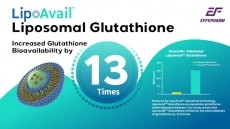Cognis launches vegetarian Xangold beadlets
of its marigold-derived Xangold 10% microencapsulated lutein ester
beadlets for tablet and dry food formulators seeking to meet the
needs of a burgeoning vegetarian market.
According to product manager Carrie Potaczek, Xangold 10% GFB microencapsulated beadlets are intended to appeal to both Cognis' customers and the end consumers.
"Xangold 10% GFB will appeal to customers looking for one ingredient that will easily fit a range of needs from a manufacturing standpoint, with a consumer-friendly list of added benefits," she said.
She added that the new product, like the original beadlets, offers excellent stability of 24 months. Its uniform, spherical particles are said to withstand tableting and encapsulation, resulting in less overage and more space in the formulation.
For consumers concerned about the provenance of products, the GFB beadlets are gelatin-free, kosher, non-GMO and GRAS.
In addition to the original 10% beadlets, Cognis' existing Xangold line-up consists of oil for soft gel capsules and oil-based food products in two variants - 15% OLV and 15% Soy. Both are vegetarian and kosher and offer stability of 36 months. 15% OLV is also non-GMO.
Whilst not revealing projected sales figures, a Cognis spokesperson told NutraIngredients-USA.com: "We expect the new Xangold 10% GFB to be just as successful as our other Xangold products - if not more so, given market data and expressed interest from customers and prospects."
Xangold was first launched to the market in 2001 and achieved GRAS status in January 2003.
Cognis has submitted a petition to the FDA for a qualified health claim linking consumption of Xangold natural lutein esters to a reduced risk of age-related macular degeneration (AMD) and cataracts. It expects to receive a response from the FDA on 6 May 2005.
The market in lutein and lutein esters (in which fatty acids are bound to the lutein) has mushroomed in recent years thanks to increasing evidence suggesting a link between supplementation and prevention of AMD, a progressive eye disease which affects the central macula of the eye, leaving sufferers with only peripheral vision. It is the leading cause of blindness in people over age 55, affecting more than 10 million adults in the US.
According to InfoScan, monthly lutein sales increased almost 33 percent between 2003 and December 2004, from $560,000 to $740,000.
Lutein and zeaxanthin are the only two carotenoids found in the retina and lens and are thought to act as antioxidants, filtering out harmful blue light and protecting the eye from oxidative damage.
The putative benefits of lutein supplementation have led to the development of dietary supplements marketed specifically to consumers concerned about retaining their vision, such as Bausch & Lomb's Ocuvite PreserVision Soft Gels Lutein Formula which launched last year.
But leading multivitamin makers are also getting in on the act - Wyeth Healthcare has recently added lutein to its market-leading adult product, Centrum.









